ChatGPT marked the massive bang second of generative AI. Solutions may be generated in response to almost any question, serving to rework digital work corresponding to content material creation, customer support, software program growth and enterprise operations for information staff.
Bodily AI, the embodiment of synthetic intelligence in humanoids, factories and different gadgets inside industrial methods, has but to expertise its breakthrough second.
This has held again industries corresponding to transportation and mobility, manufacturing, logistics and robotics. However that’s about to alter thanks to 3 computer systems bringing collectively superior coaching, simulation and inference.
The Rise of Multimodal, Bodily AI
For 60 years, “Software program 1.0” — serial code written by human programmers — ran on general-purpose computer systems powered by CPUs.
Then, in 2012, Alex Krizhevsky, mentored by Ilya Sutskever and Geoffrey Hinton, received the ImageNet pc picture recognition competitors with AlexNet, a revolutionary deep studying mannequin for picture classification.
This marked the business’s first contact with AI. The breakthrough of machine studying — neural networks working on GPUs — jump-started the period of Software program 2.0.
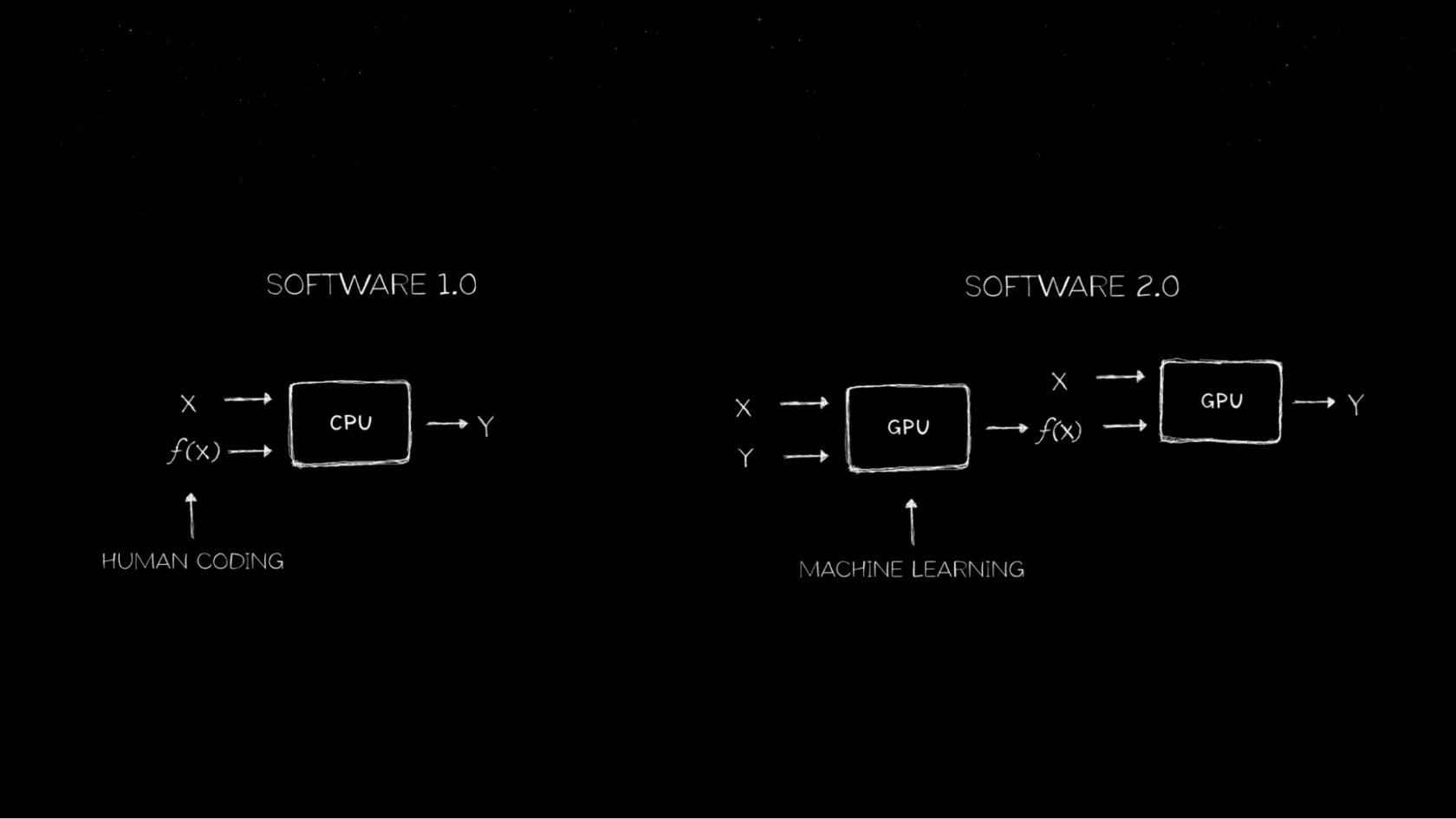
Immediately, software program writes software program. The world’s computing workloads are shifting from general-purpose computing on CPUs to accelerated computing on GPUs, leaving Moore’s regulation far behind.
With generative AI, multimodal transformer and diffusion fashions have been skilled to generate responses.
Massive language fashions are one-dimensional, capable of predict the subsequent token, in modes like letters or phrases. Picture- and video-generation fashions are two-dimensional, capable of predict the subsequent pixel.
None of those fashions can perceive or interpret the three-dimensional world. And that’s the place bodily AI is available in.
Bodily AI fashions can understand, perceive, work together with and navigate the bodily world with generative AI. With accelerated computing, multimodal bodily AI breakthroughs and large-scale bodily primarily based simulations are permitting the world to comprehend the worth of bodily AI by means of robots.
A robotic is a system that may understand, motive, plan, act and study. Robots are sometimes considered autonomous cell robots (AMRs), manipulator arms or humanoids. However there are a lot of extra sorts of robotic embodiments.
Within the close to future, all the things that strikes, or that displays issues that transfer, will likely be autonomous robotic methods. These methods will likely be able to sensing and responding to their environments.
All the pieces from surgical rooms to information facilities, warehouses to factories, even visitors management methods or complete sensible cities will rework from static, operated by hand methods to autonomous, interactive methods embodied by bodily AI.
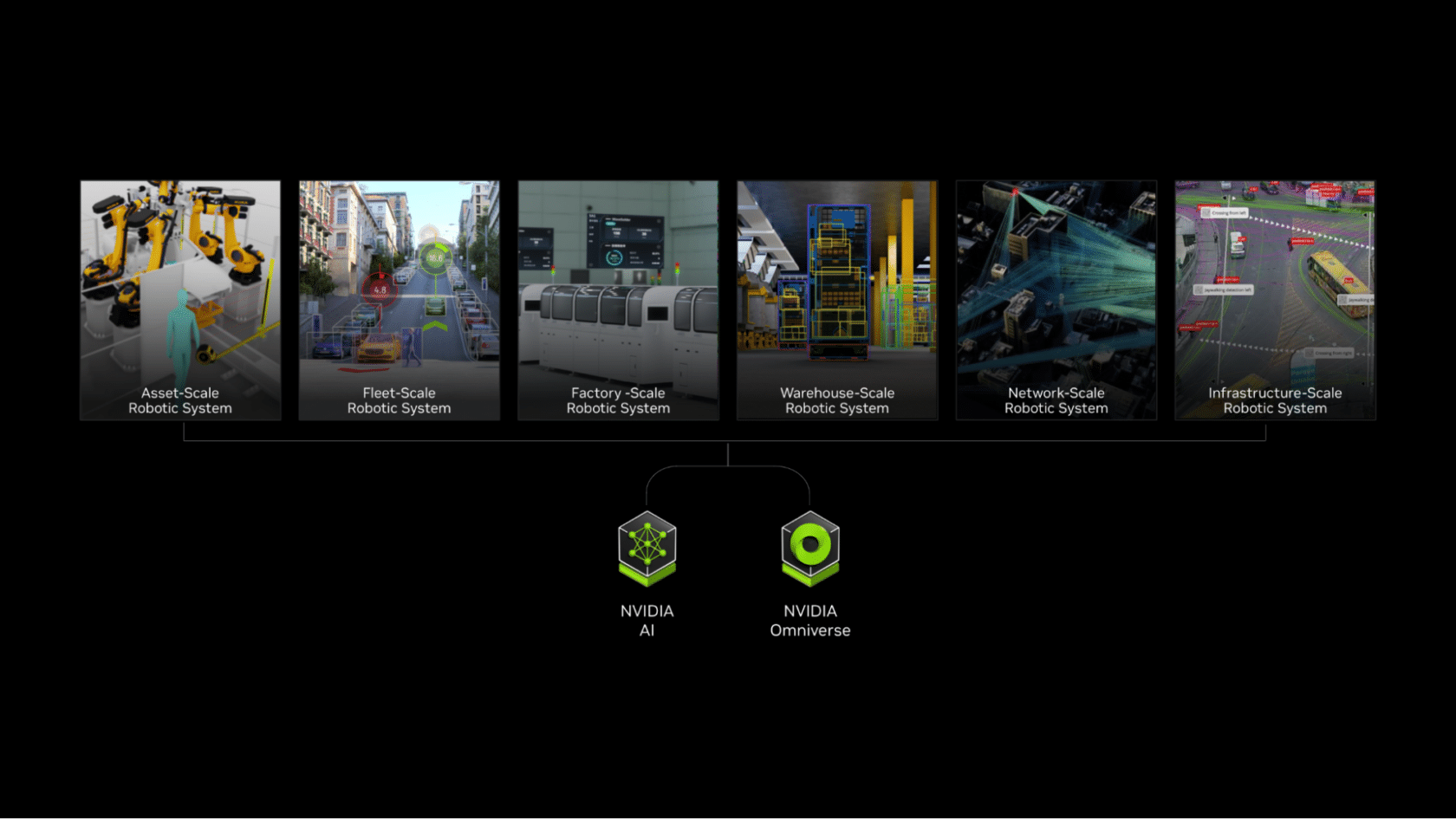
The Subsequent Frontier: Humanoids Robots
Humanoid robots are a super general-purpose robotic manifestation as a result of they will function effectively in environments constructed for people, whereas requiring minimal changes for deployment and operation.
The world marketplace for humanoid robots is anticipated to succeed in $38 billion by 2035, a greater than sixfold improve from the roughly $6 billion for the interval forecast almost two years in the past, in response to Goldman Sachs.
Researchers and builders all over the world are racing to construct this subsequent wave of robots.
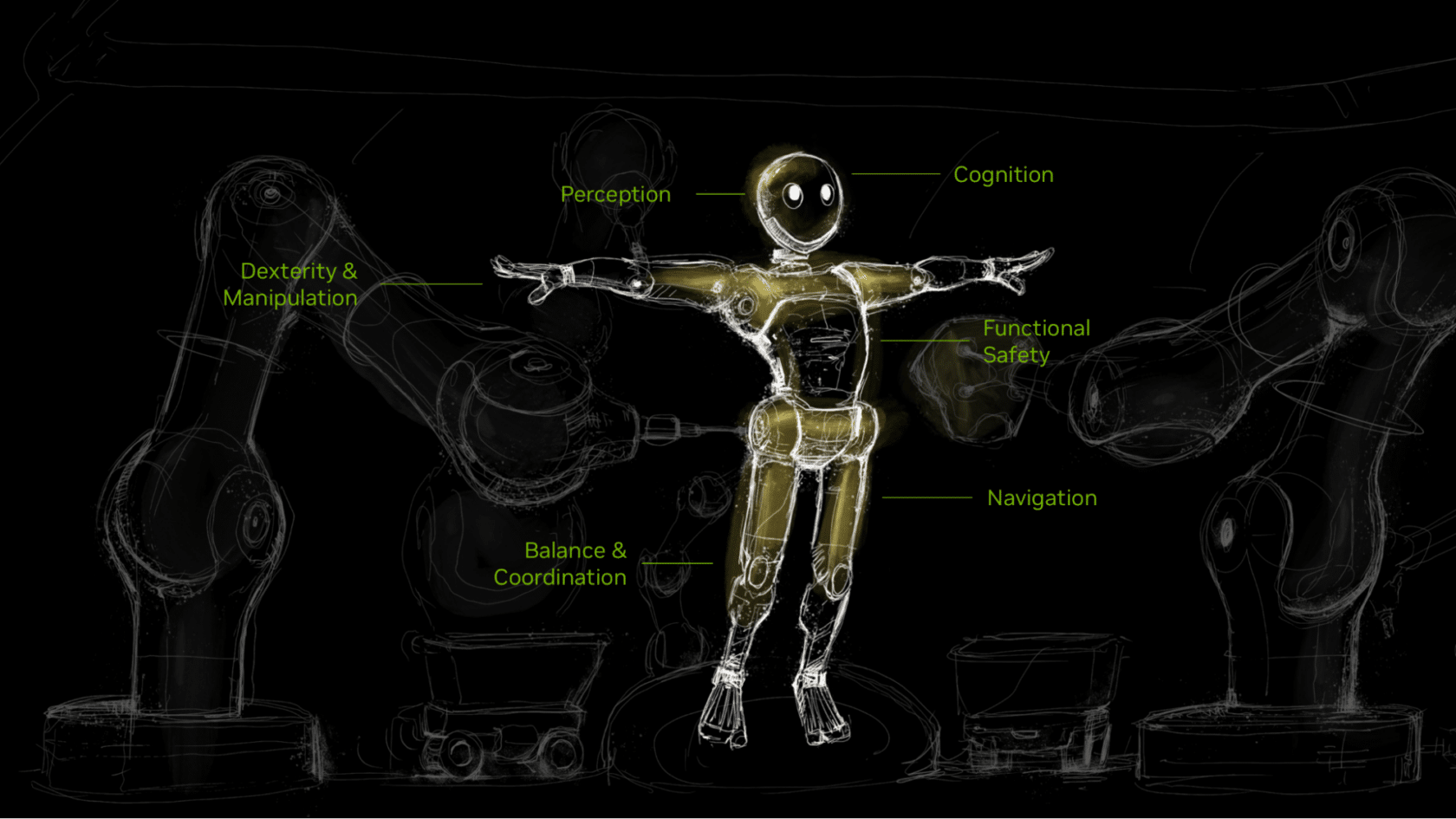
Three Computer systems to Develop Bodily AI
To develop humanoid robots, three accelerated pc methods are required to deal with bodily AI and robotic coaching, simulation and runtime. Two computing developments are accelerating humanoid robotic growth: multimodal basis fashions and scalable, bodily primarily based simulations of robots and their worlds.
Breakthroughs in generative AI are bringing 3D notion, management, talent planning and intelligence to robots. Robotic simulation at scale lets builders refine, take a look at and optimize robotic abilities in a digital world that mimics the legal guidelines of physics — serving to scale back real-world information acquisition prices and making certain they will carry out in secure, managed settings.
NVIDIA has constructed three computer systems and accelerated growth platforms to allow builders to create bodily AI.
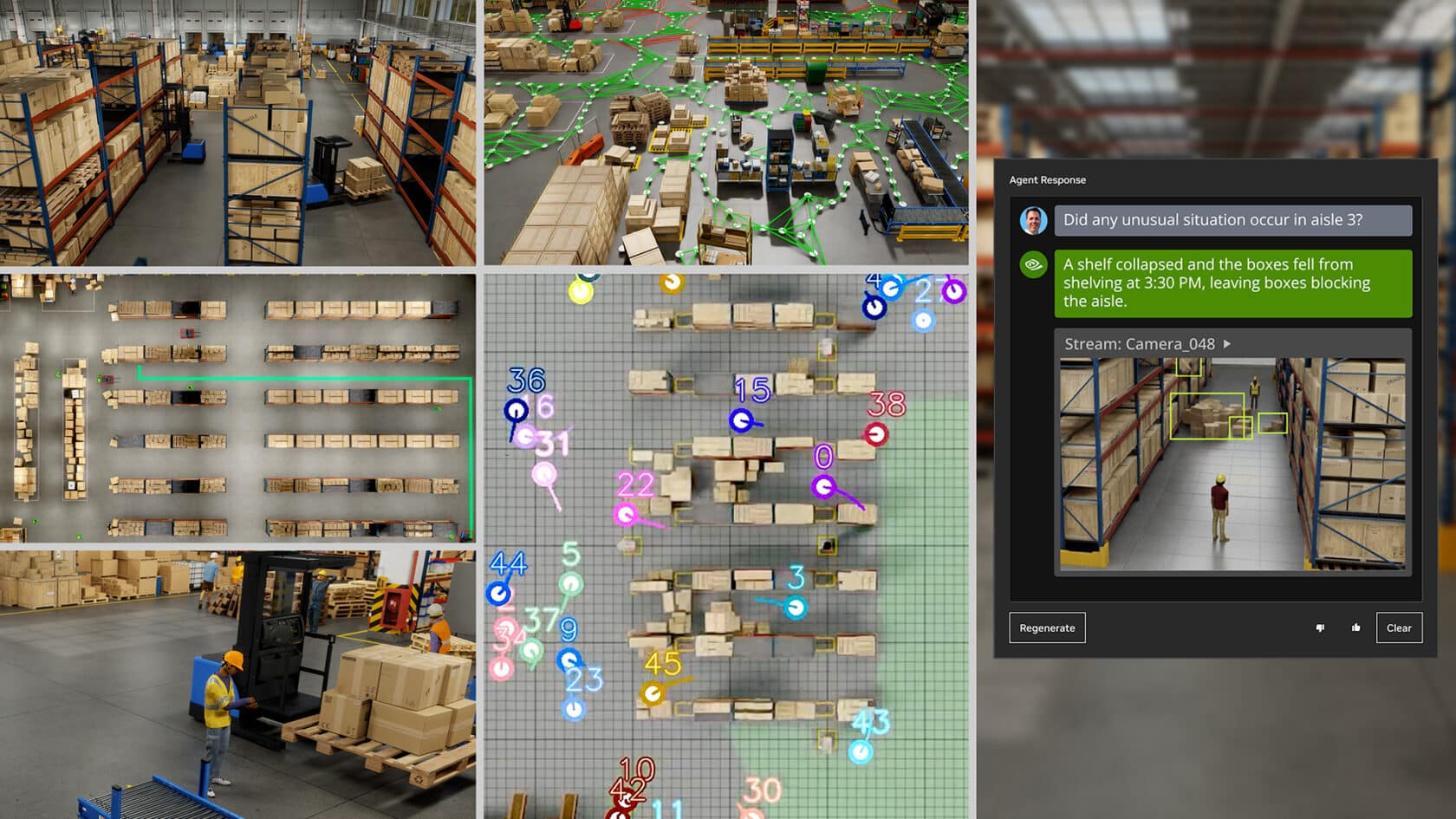
First, fashions are skilled on a supercomputer. Builders can use NVIDIA NeMo on the NVIDIA DGX platform to coach and fine-tune highly effective basis and generative AI fashions. They will additionally faucet into NVIDIA Mission GR00T, an initiative to develop general-purpose basis fashions for humanoid robots to allow them to know pure language and emulate actions by observing human actions.
Second, NVIDIA Omniverse, working on NVIDIA OVX servers, gives the event platform and simulation setting for testing and optimizing bodily AI with utility programming interfaces and frameworks like NVIDIA Isaac Sim.
Builders can use Isaac Sim to simulate and validate robotic fashions, or generate large quantities of physically-based artificial information to bootstrap robotic mannequin coaching. Researchers and builders may also use NVIDIA Isaac Lab, an open-source robotic studying framework that powers robotic reinforcement studying and imitation studying, to assist speed up robotic coverage coaching and refinement.
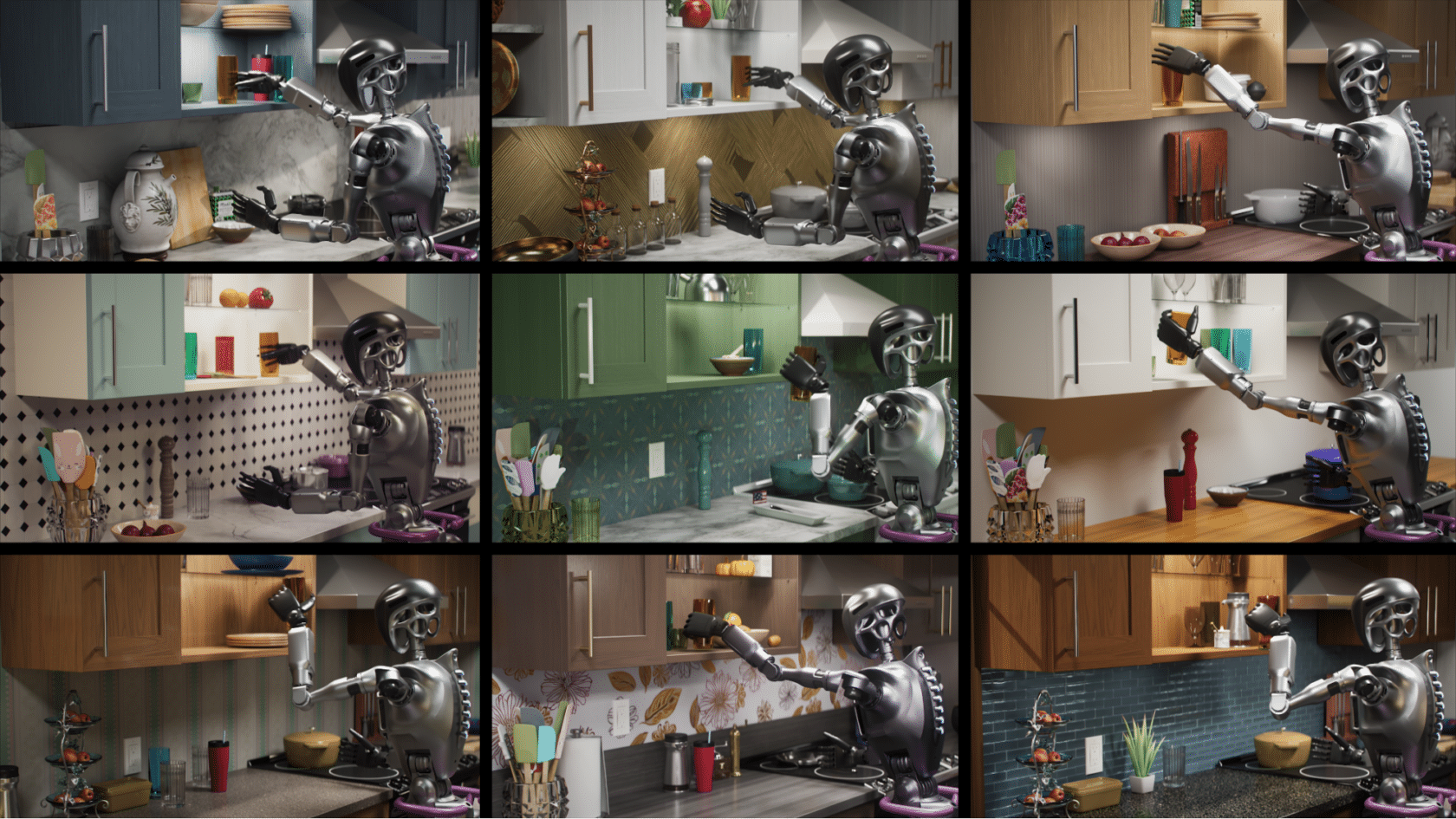
Lastly, skilled AI fashions are deployed to a runtime pc. NVIDIA Jetson Thor robotics computer systems are particularly designed for compact, on-board computing wants. An ensemble of fashions consisting of management coverage, imaginative and prescient and language fashions composes the robotic mind and is deployed on a power-efficient, on-board edge computing system.
Relying on their workflows and problem areas, robotic makers and basis mannequin builders can use as most of the accelerated computing platforms and methods as wanted.
Constructing the Subsequent Wave of Autonomous Amenities
Robotic amenities consequence from a fruits of all of those applied sciences.
Producers like Foxconn or logistics firms like Amazon Robotics can orchestrate groups of autonomous robots to work alongside human staff and monitor manufacturing unit operations by means of a whole lot or 1000’s of sensors.
These autonomous warehouses, crops and factories can have digital twins. The digital twins are used for format planning and optimization, operations simulation and, most significantly, robotic fleet software-in-the-loop testing.
Constructed on Omniverse, “Mega” is a blueprint for manufacturing unit digital twins that allows industrial enterprises to check and optimize their robotic fleets in simulation earlier than deploying them to bodily factories. This helps guarantee seamless integration, optimum efficiency and minimal disruption.
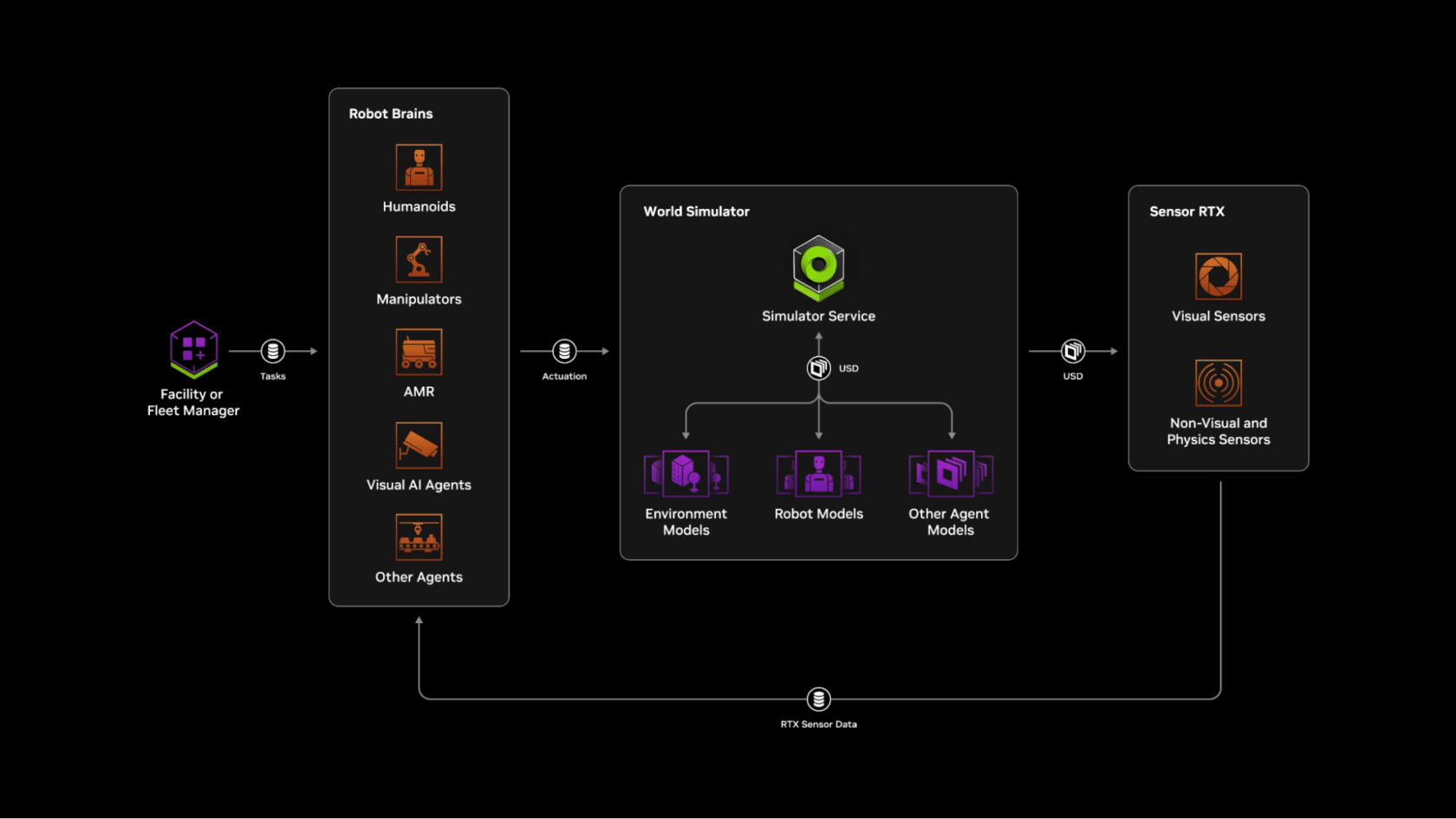
Mega lets builders populate their manufacturing unit digital twins with digital robots and their AI fashions, or the brains of the robots. Robots within the digital twin execute duties by perceiving their setting, reasoning, planning their subsequent movement and, lastly, finishing deliberate actions.
These actions are simulated within the digital setting by the world simulator in Omniverse, and the outcomes are perceived by the robotic brains by means of Omniverse sensor simulation.
With sensor simulations, the robotic brains resolve the subsequent motion, and the loop continues, all whereas Mega meticulously tracks the state and place of each aspect inside the manufacturing unit digital twin.
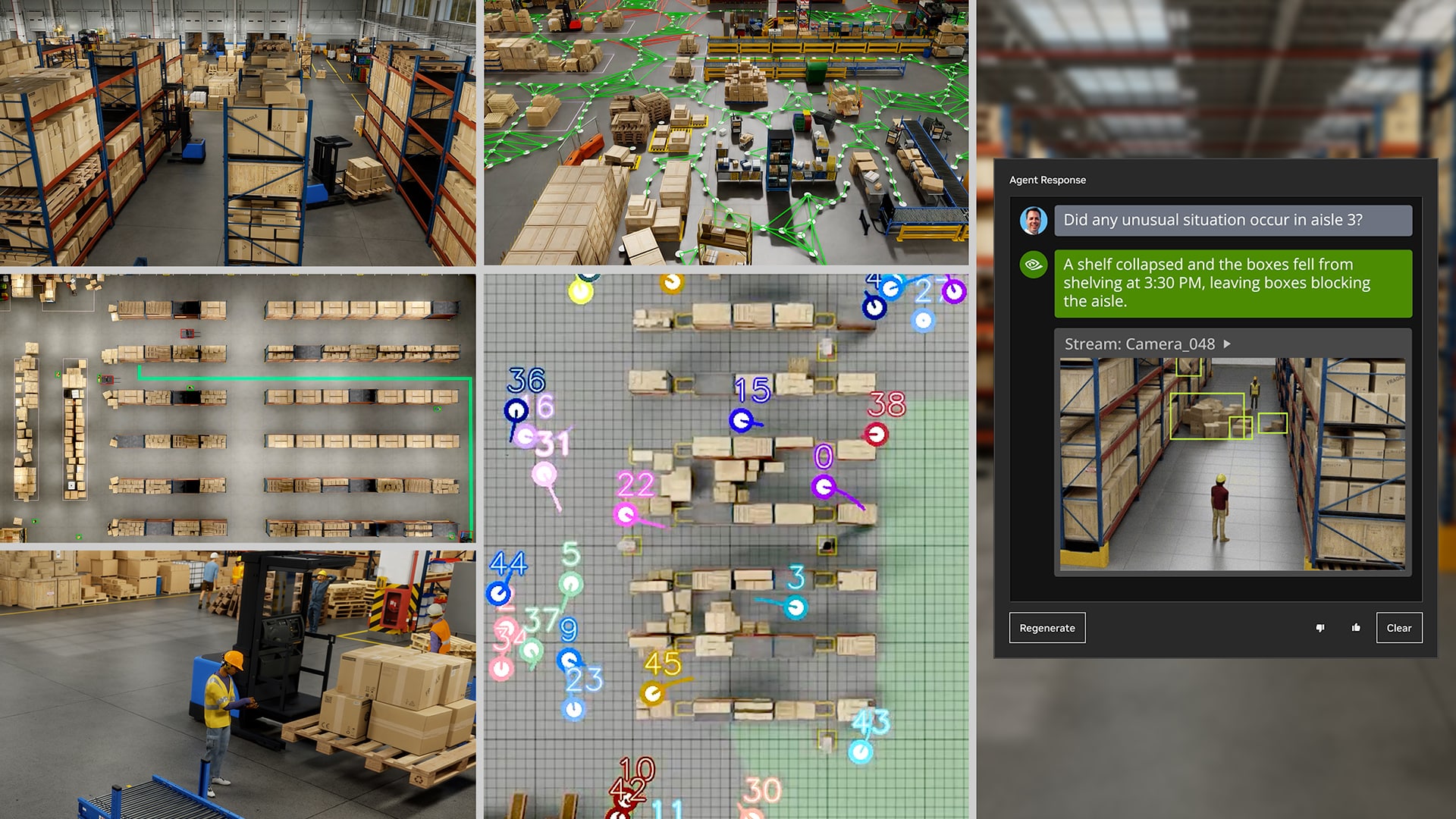
This superior software-in-the-loop testing methodology allows industrial enterprises to simulate and validate modifications inside the secure confines of the Omniverse digital twin, serving to them anticipate and mitigate potential points to scale back threat and prices throughout real-world deployment.
Empowering the Developer Ecosystem With NVIDIA Know-how
NVIDIA accelerates the work of the worldwide ecosystem of robotics builders and robotic basis mannequin builders with three computer systems.
Common Robots, a Teradyne Robotics firm, used NVIDIA Isaac Manipulator, Isaac accelerated libraries and AI fashions, and NVIDIA Jetson Orin to construct UR AI Accelerator, a ready-to-use {hardware} and software program toolkit that allows cobot builders to construct purposes, speed up growth and scale back the time to market of AI merchandise.
RGo Robotics used NVIDIA Isaac Perceptor to assist its wheel.me AMRs work all over the place, on a regular basis, and make clever choices by giving them human-like notion and visual-spatial info.
Humanoid robotic makers together with 1X Applied sciences, Agility Robotics, Apptronik, Boston Dynamics, Fourier, Galbot, Mentee, Sanctuary AI, Unitree Robotics and XPENG Robotics are adopting NVIDIA’s robotics growth platform.
Boston Dynamics is utilizing Isaac Sim and Isaac Lab to construct quadrupeds and humanoid robots to enhance human productiveness, deal with labor shortages and prioritize security in warehouses.
Fourier is tapping into Isaac Sim to coach humanoid robots to function in fields that demand excessive ranges of interplay and flexibility, corresponding to scientific analysis, healthcare and manufacturing.
Utilizing Isaac Lab and Isaac Sim, Galbot superior the event of a large-scale robotic dexterous grasp dataset known as DexGraspNet that may be utilized to completely different dexterous robotic palms, in addition to a simulation setting for evaluating dexterous greedy fashions.
Area AI developed risk-bounded multitask and multipurpose basis fashions for robots to securely function in out of doors subject environments, utilizing the Isaac platform and Isaac Lab.
The period of bodily AI is right here — and it’s remodeling the world’s heavy industries and robotics.
Get began with NVIDIA Robotics.